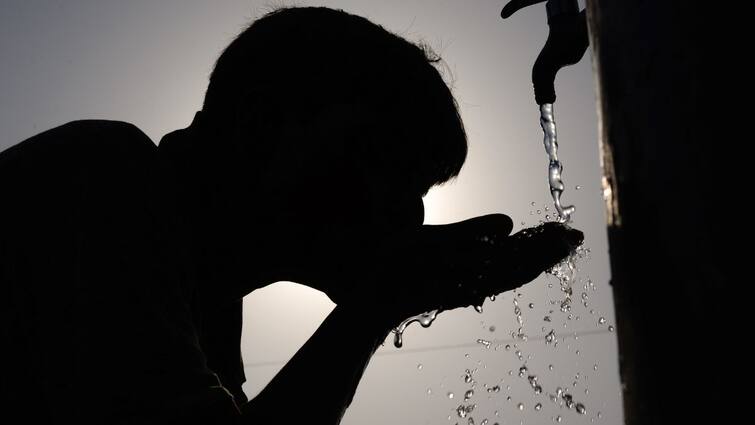Hydration Is Key To Good Health But Is There Such A Thing As Too Much Water? All About Water Intoxication
We have all heard the advice to drink lots of water. But doctors say there is a way to hydrate properly, or there can be life-threatening consequences.

Water Intoxication: In 2007, the husband of a California woman who died after participating in a radio station’s water drinking contest, was awarded $16.5 million in compensation by a jury following a wrongful death lawsuit. Jennifer Strange, 28, was among 18 people who entered the ‘Hold Your Wee for a Wii’ competition. They tried to drink as much water as they could without urinating in a bid to win a Nintendo Wii gaming console. The young mother-of-three came second, winning a pair of concert tickets, but fell sick and died in her bathroom just hours after the contest.
The case made the world sit up and take note of the dangers of drinking too much water. We have all heard the advice to drink lots of water. Drinking plenty of water, they say, helps the kidneys by flushing out toxins and preventing the formation of kidney stones. It supports digestion by aiding in the breakdown and absorption of food while preventing constipation. Overall, staying hydrated boosts energy levels, maintains skin health, and supports vital bodily functions like temperature regulation and circulation.
Dr Sudhir Kumar, a Hyderabad-based neurologist who has gained popularity on social media with his insights on various diseases, recently shared a post about a woman who reportedly drank 4 litres of water one morning for “detoxification”.
According to Dr Sudhir Kumar, within an hour, “Ms Rajni (name changed)... developed headache, nausea and vomited once”. A few minutes later, she felt “confused and disoriented”, which was followed by a “seizure and loss of consciousness”.
40-year-old drank plenty of water in the morning for "detoxification", but it resulted in a life-threatening complication
— Dr Sudhir Kumar MD DM (@hyderabaddoctor) December 22, 2024
40-year-old Ms Rajni (name changed) was told to drink water in the morning to detoxify her body. It was claimed that drinking excess water in the morning…
Rajni, Dr Kumar said, was eventually diagnosed with hyponatremia caused by water intoxication as her serum sodium level had dropped to 110 mmol/L, against a normal of 135-145. Admitted to the ICU, and treated as an emergency case, she was lucky to recover and was discharged after 4 days.
ABP Live asked Dr P.S. Vali, a senior consultant nephrologist (head of department) at Asian Institute of Nephrology and Urology, Hyderabad, about how to hydrate safely, and what to do in case of over-hydration emergencies. Here is what Dr Vali told us, while also citing studies from peer-reviewed journals of medicine.
ABP: How much water does a human need in a day?
Dr P.S. Vali: Water is a fundamental prerequisite to ensure efficient functioning of the human body, which consists of approximately 60% water. On average, adults in India need about 2.5 to 3 litres of water daily, depending on factors like climate, physical activity level, and individual health parameters. In this universe, each domain functions on the fundamental principle of achieving an intricate balance. Anything, however precious it is, in excess can become a poison, if this mechanism of intricate balance is disturbed. The same applies to water balance. While staying hydrated is crucial, exceeding the body’s requirements can pave the path to adverse consequences. The kidneys of a healthy adult are capable of processing around 0.8-1 litre of water per hour. Consuming water at a rate faster than this for hours together can potentially lead to the state of water intoxication.
ABP: Can drinking too much water cause a health crisis?
Dr P.S. Vali: Yes, consuming excessive amounts of water can lead to a rare but serious condition called water intoxication. This happens when the kidneys cannot excrete the surplus water quickly enough, leading to dilution of sodium levels in the bloodstream. Hyponatremia is the technical term to describe such a fall in sodium levels in blood. Sodium is a dynamic ion of the body, and has a pivotal role in maintaining fluid balance and nerve and muscle function. An imbalance in sodium and water can disrupt these vital processes, which can have devastating complications in a few fragile individuals, such as the elderly.
ABP: What is hyponatremia? Signs and symptoms?
Dr PS Vali: Hyponatremia occurs when the sodium concentration in the blood falls below the normal range. There is a big battery of reasons for hyponatremia and over-hydration is a well-established cause of it. Patients with low sodium present with a spectrum of manifestations. Early signs include nausea, intractable vomiting, headache, and confusion. In severe cases, symptoms may escalate to seizures, brain swelling, or coma. Hyponatremia requires prompt recognition to prevent serious complications.
ABP: What to do if one has consumed a dangerously high amount of water?
Dr PS Vali: If someone experiences symptoms of over-hydration, immediate action is necessary. Stop drinking additional fluids and seek medical attention promptly. Healthcare providers will assess the magnitude of the condition and will treat as per the gravity of hyponatremia.
ABP: Can one die of hyponatremia? How is it treated in the hospital?
Dr PS Vali: Severe hyponatremia can be life-threatening if untreated. Treatment in a hospital setting often includes careful administration of sodium via intravenous fluids and restriction of water intake. Ensuring gradual correction of hyponatremia is the crucial aspect of hyponatremia management. Rapid correction of hyponatremia can lead to irreversible brain damage.
Therefore, severe hyponatremia needs to be treated in a hospital setting under close monitoring so as to avoid rapid shifts in sodium that can damage the brain.
Moderation Is Key
While water is essential, and proper hydration results in several benefits, moderation is key. Listening to your body’s thirst signals and understanding your individual needs can help maintain optimal hydration and prevent complications.
The writer is a senior independent journalist.
[Disclaimer: The information provided in this article is for general informational purposes only and is not intended as a substitute for professional medical advice, diagnosis, or treatment. Always seek the advice of your physician or other qualified healthcare provider with any questions you may have regarding a medical condition or health concern.]
Check out below Health Tools-
Calculate Your Body Mass Index ( BMI )
Calculate The Age Through Age Calculator






































